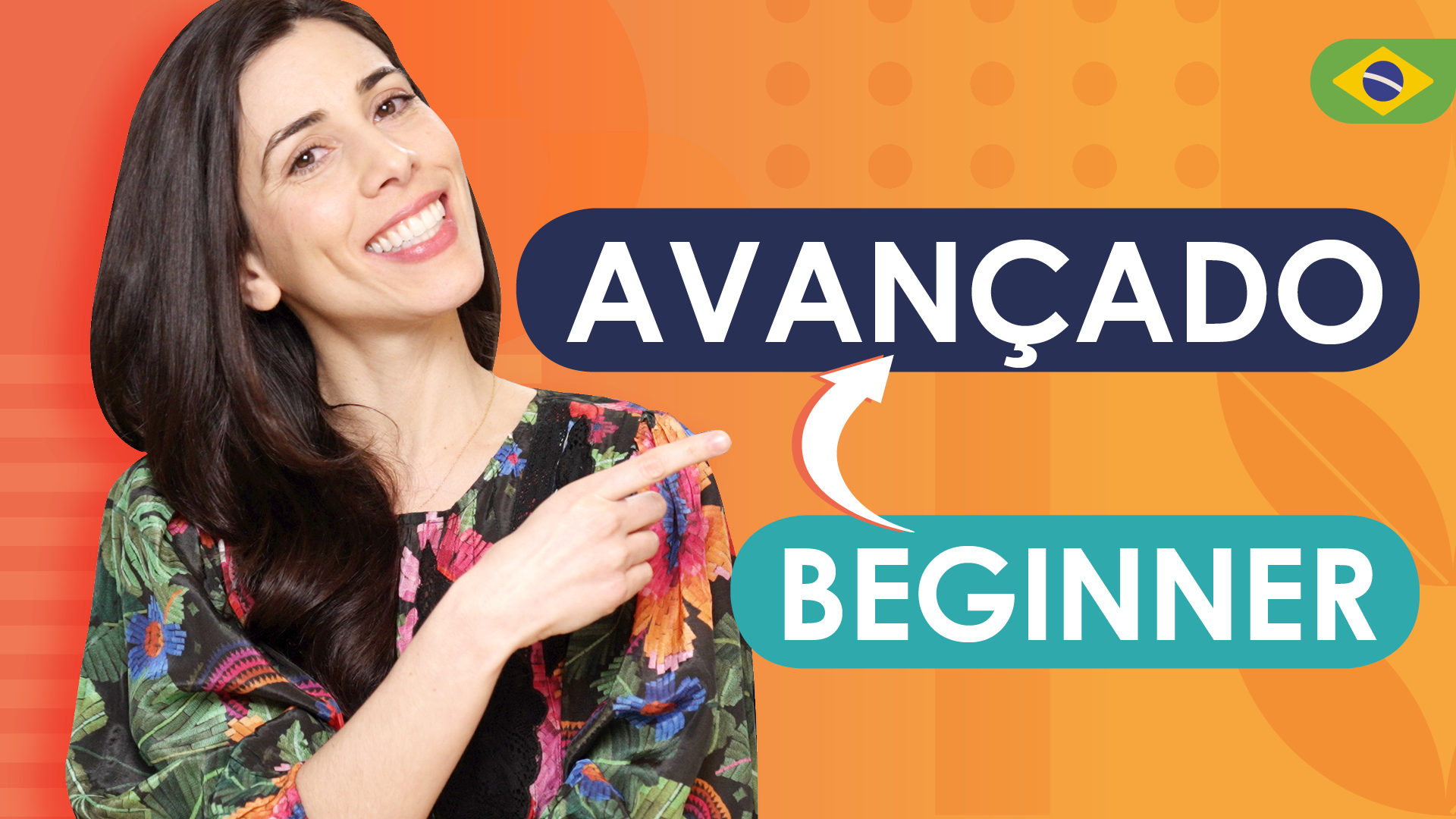Join the Speaking Brazilian YouTube Club to have access to the transcript of this video and many other videos.
Let’s talk about grammar!
Should we study grammar? Do you think that it’s important to focus on grammar when you’re learning a second language? Let’s talk about it!
In short, my response is yes, we should learn grammar to speak a language correctly.
If you don’t know how to conjugate verbs or use prepositions, for example, you won’t be able to communicate well in Portuguese.
But I think that’s not the right question. Instead of asking ourselves if we need to learn grammar or not, we should be asking:
What is the best way to learn grammar in an enjoyable and efficient way?
And the response to this question is: it depends on the person!
These days, there are hundreds of different methods and ways to learn a language. I’m going to talk a little about the pros and cons of a more traditional approach and a more natural one. Afterwards, I will talk about the method I recommend.
The traditional approach
Let’s get started by talking about the more traditional approach, which focuses on studying grammar rules.
What are the pros and cons of this more traditional approach?
Pros: The advantage of studying grammar rules is that you will have greater knowledge of the language, and this will enable you to accelerate your learning.
Studying grammar will help you recognize patterns in the language that you can reuse in different ways and transfer to other contexts. For example, when you study verb conjugation and learn the terminations of a particular verb tense, you can apply this knowledge to countless other verbs in varying situations.
Cons: On the other hand, the big disadvantage that I have observed in students who like studying grammar is that some students stick too closely to grammar rules and have difficulty understanding the nuances of the spoken language that, many times, doesn’t follow the rules.
I’ve seen many students waste their time studying subjects that, probably, they will never use. Many rules that you find in grammar books aren’t used in the language, especially in the Portuguese spoken in Brazil.
If you like studying grammar, that’s great! It can help you a lot! But remember that the language is alive, and the use of the language isn’t restricted only to what is written in grammar books.
The natural approach
Let’s talk now about the more natural approach that focuses on contextual learning, observation, and imitating native speakers.
What are the pros and cons of this more natural approach?
Pros: I think that the biggest advantage of this approach is that it’s more interesting and fun. You can learn Portuguese by watching shows, movies, and videos in general, reading books, being around Brazilians, and staying in contact with the language in many different ways.
Cons: On the other hand, a disadvantage I have observed in students who don’t like to study grammar rules and want to learn Portuguese in a totally natural way is that some students end up making mistakes frequently and creating an aversion to grammar.
Guys, it’s obvious that making mistakes is a part of learning. It’s important that you aren’t afraid of making mistakes. It’s through making mistakes that you learn. But it’s also important for you to learn from your mistakes and try to improve. And that means that, sometimes, you will have to study at least a little bit of grammar.
Remember that learning any foreign language demands effort and dedication, regardless of the method you use. If it were easy, everyone would be a polyglot, wouldn’t they?
Can we learn languages like children?
I’ve heard many people say that it isn’t necessary to learn grammar to speak a foreign language. I think what these people are trying to say is that it’s not necessary to study grammar the traditional way. I honestly don’t think it’s possible to learn to speak any language if you don’t at least study the basics of grammar.
I’ve also heard people saying that it’s possible to learn a foreign language in a natural way, without studying grammar, like children learn to speak their native language.
On the one hand, I agree that it’s possible to learn a language in a more natural way. On the other hand, I don’t think we can compare how a child learns their first language to how an adult learns a second or third language. They are completely different situations.
I don’t want to dive too deep into this subject today because it’s very complex and long. Let’s leave that for another lesson.
What method do I recommend?
Like I said at the beginning of the lesson, the best method is the one that works for you.
As a teacher and student of foreign languages, I have arrived at the conclusion that the best method for me and for many of my students is a combination of the traditional and natural approaches.
I will give you some tips on how I recommend you learn grammar.
My recommendation is that you study a little grammar so you can understand how the language works, but don’t let this be your main focus.
For example, if you have an hour to study, you can spend around 20% of the time studying grammar and 80% of the time consuming content in different ways, such as movies, songs, podcasts, and books, to assimilate the language in a more natural way.
Additionally, when studying grammar, avoid memorizing complicated rules or random verb conjugations. It’s much more useful and motivating to learn phrases that you will actually use.
For example, let’s study the conjugation of the verb SER (to be) in the present indicative:
Eu sou (I am)
Você é (You are)
Nós somos (We are)
Eles são (They are)
Now think of how you would use this verb in real life in a conversation with Brazilians. For example:
Eu sou brasileira. (I am Brazilian).
Eu sou professora. (I am a teacher).
Eu sou casada. (I am married).
Meu marido é brasileiro. (My husband is Brazilian).
Meus irmãos são brasileiros. (My siblings are Brazilian).
Nós somos brasileiros. (We are Brazilian).
See that I used the verb SER in a way that’s useful to me. And you? How would you use the verb SER to talk about things relevant to you, your life, your family, or friends?
When you bring grammar into your reality, you will learn in a more pleasurable and practical way.
And speaking of practice, it’s obvious that in addition to studying a little grammar and consuming a lot of content in Portuguese, it’s so important to find opportunities to speak Portuguese and put into practice what you’ve learned.
That’s it, guys! I hope this is helpful.
Até a próxima!
Virginia Langhammer


